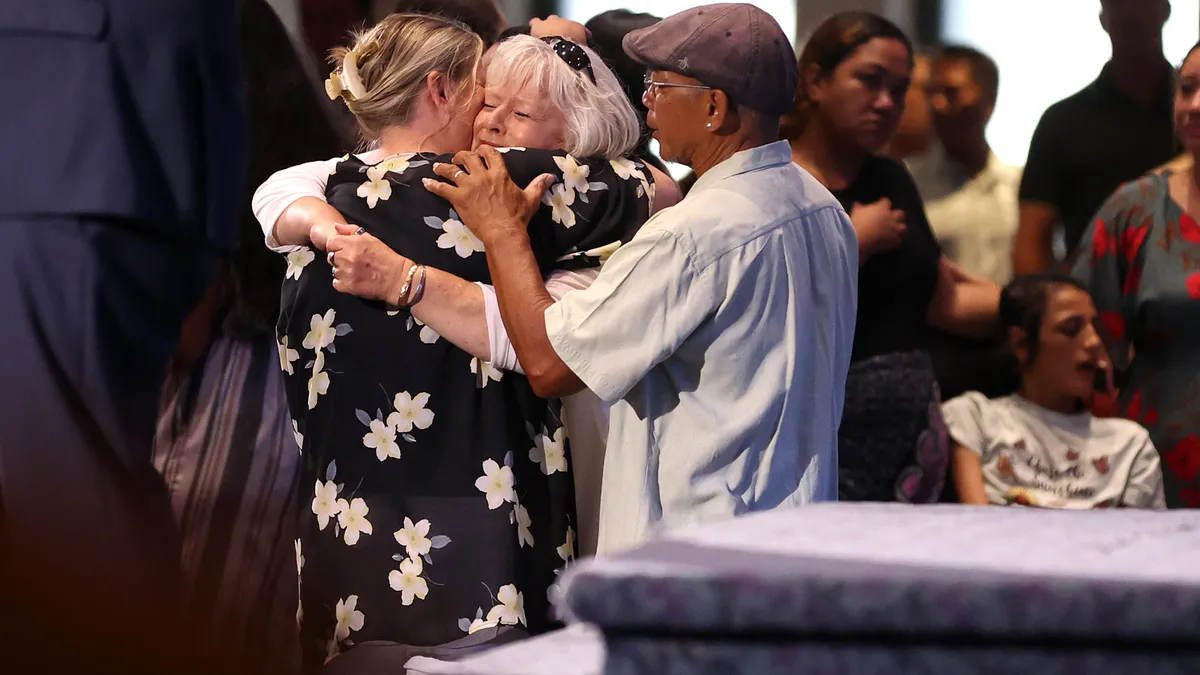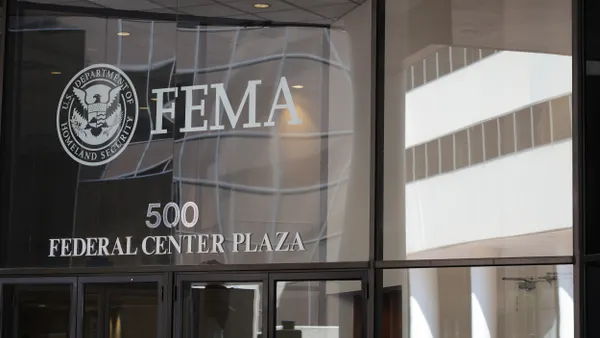Dive Brief:
- The Federal Emergency Management Agency is overhauling its process for bringing aid to disaster survivors, the agency announced Friday. The reforms aim to get money to survivors faster in the wake of a disaster, cut red tape and give people more flexibility in how they use aid.
- FEMA’s disaster assistance programs have long been criticized as difficult to access and for taking too long to bring aid to those who need it. FEMA said its reforms are based on decades of feedback from disaster survivors, communities and stakeholders.
- Expected to go into effect for disasters declared on or after March 22, the reforms mark “the most significant update to survivor assistance in the last 20 years,” FEMA Administrator Deanne Criswell said.
Dive Insight:
The U.S. was hit hard last year by an unprecedented number of billion-dollar disasters, stretching federal funds thin. Such extreme weather is only expected to become more frequent as climate change worsens, FEMA noted in its press release about the reforms.
Jeff Schlegelmilch, director of Columbia Climate School’s National Center for Disaster Preparedness, said in an email to Smart Cities Dive that the reforms seem to substantively respond to many of the concerns disaster survivors have with FEMA’s current process.
“With that being said, implementation will be key,” he said, noting a continued need to monitor equity trends in disaster aid provisions to ensure the changes’ desired effect is being realized.
Through its overhaul, FEMA will:
- Allow all disaster survivors to access immediate cash support, in the form of $750 per household with serious needs, for expenses related to sheltering, evacuation and meeting basic needs. Previously, such immediate financial support was only available on a disaster-by-disaster basis.
- Provide eligible survivors with upfront funds to use on their choice of immediate housing options, such as costs associated with staying with family and friends, until they can secure a rental option to focus on long-term recovery.
- Get rid of a requirement that survivors apply for a loan through the U.S. Small Business Administration before being considered for certain FEMA financial assistance. “Survivors reported significant confusion that FEMA processes required they apply for a loan they did not want,” the agency said.
- Loosen rules that withheld financial assistance from survivors who had already received funds from their insurance company at or above the level of FEMA’s annual cap for household repair assistance. Previously, such people were not able to access more FEMA funds, even if the insurance payment would not cover all rebuilding costs or if the survivor had losses not covered by insurance. Now, financial assistance will be available up to the cap, which is $42,500 in 2024, to cover costs not reimbursed by insurance, including deductibles and underinsured losses.
- Simplify the process for helping entrepreneurs, gig workers and other self-employed individuals reopen their businesses more quickly post-disaster. FEMA may provide initial funds to help these individuals replace disaster-damaged equipment rather than making them apply for a loan through the Small Business Administration.
- Make changes that allow survivors to repair homes to a habitable state, even if parts of the home weren’t considered functional before the disaster. “Previously, if a home had a leaky roof prior to a disaster, that area of the home would not qualify for FEMA supported repairs,” the agency said in a press release. FEMA will also be more flexible on documentation proving a residence is owner-occupied for those who don’t hold a formal lease or title.
- Allow survivors with disabilities to use FEMA funding for certain accessibility improvements to homes damaged by a declared disaster even if the home did not have those features before the disaster.
- Drop a requirement for late applicants to provide documentation supporting the reason for their late application.
- Reduce documentation requirements for applicants seeking continued temporary housing assistance.
- Drop a requirement for survivors to provide a signed, written appeal letter when appealing a FEMA decision on their eligibility for support.
FEMA also revamped websites that survivors use to access assistance and lodging.
FEMA isn’t the only agency that administers programs to help disaster-stricken communities recover, and Congress may need to step in to further simplify disaster aid, Schlegelmilch said. He also noted that while he hopes FEMA’s reforms will make some equity impacts, more work is needed to address inequities in communities before they are hit by a disaster
That includes “policies and programs for healthcare, housing, education, economic development, among many others,” Schlegelmilch said. “These may not be thought of as disaster programs, but they set the table for who has the capacity to cope and who does not.”











